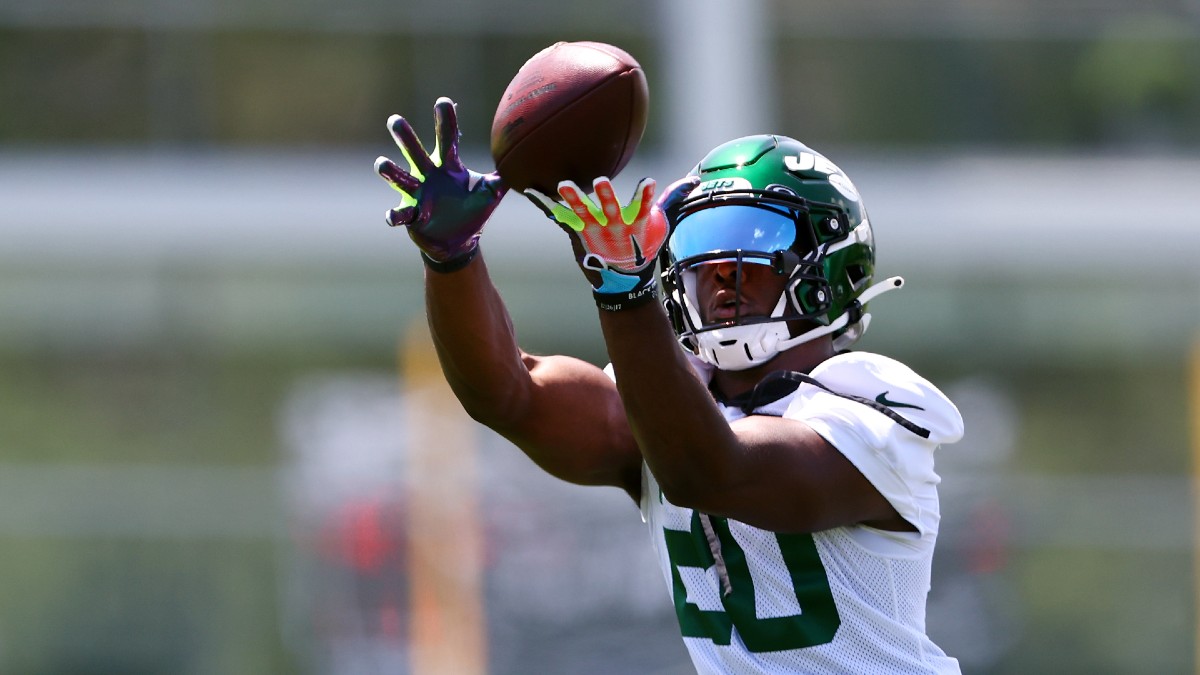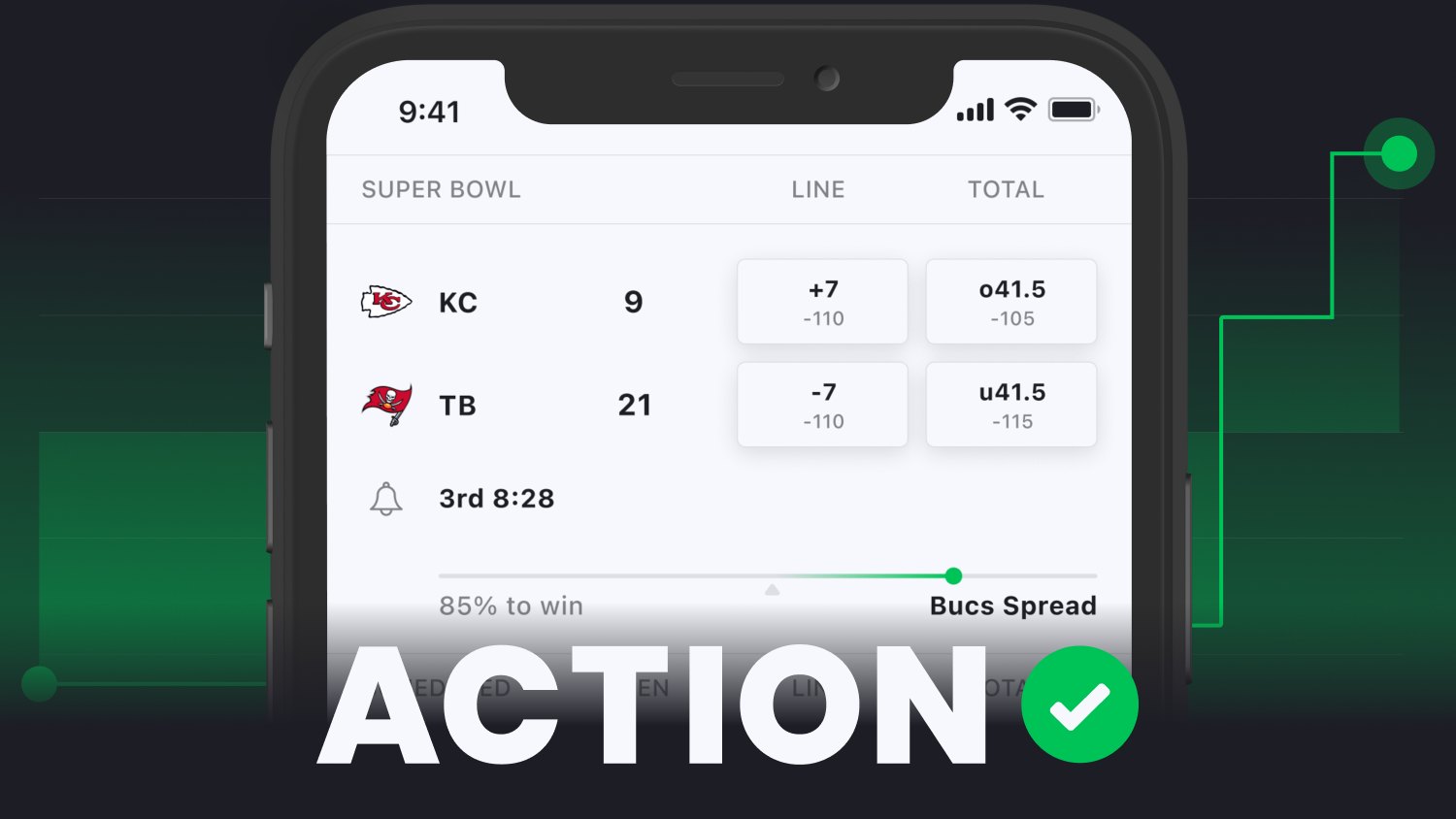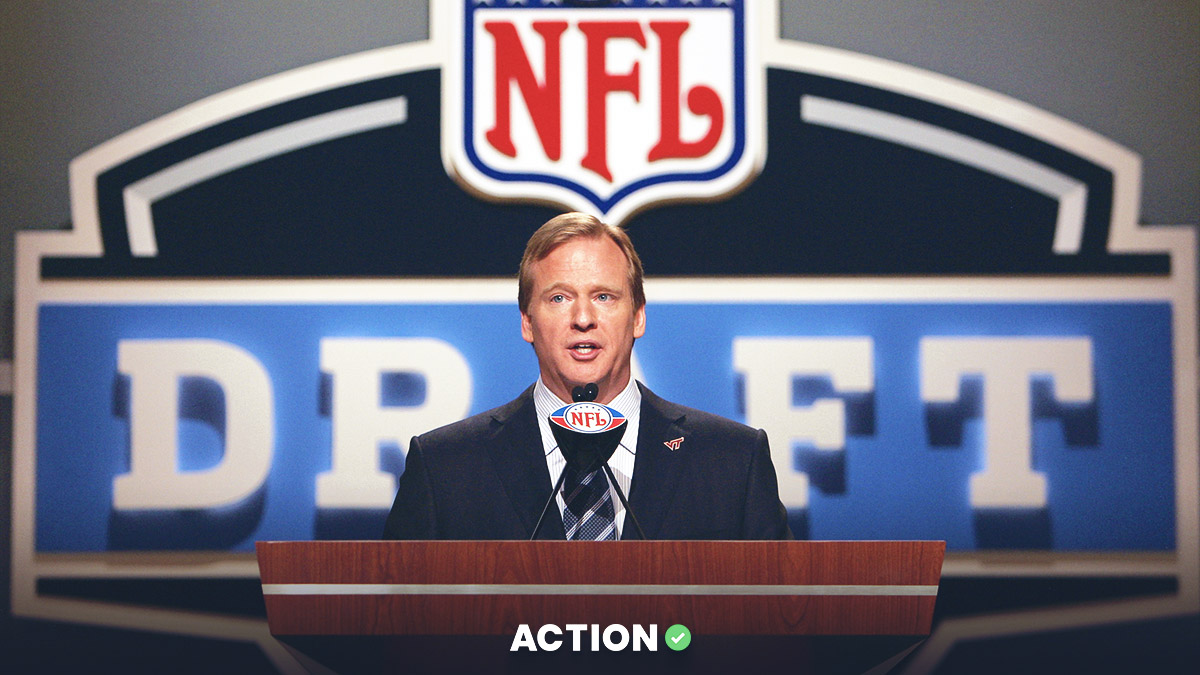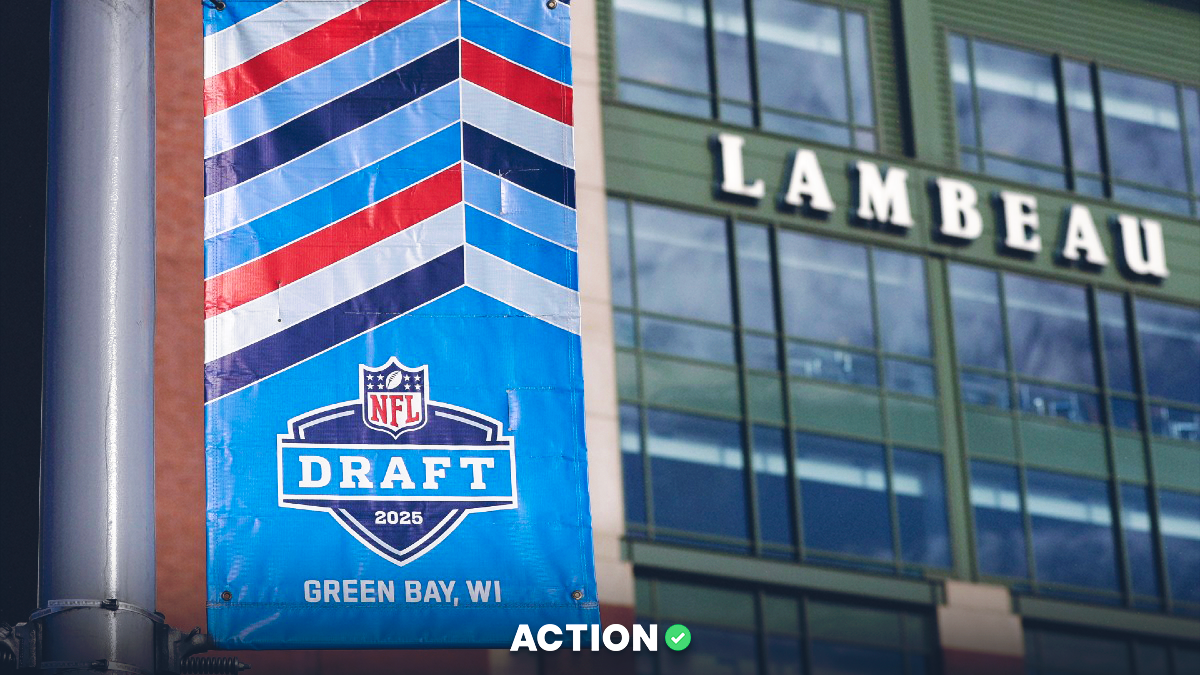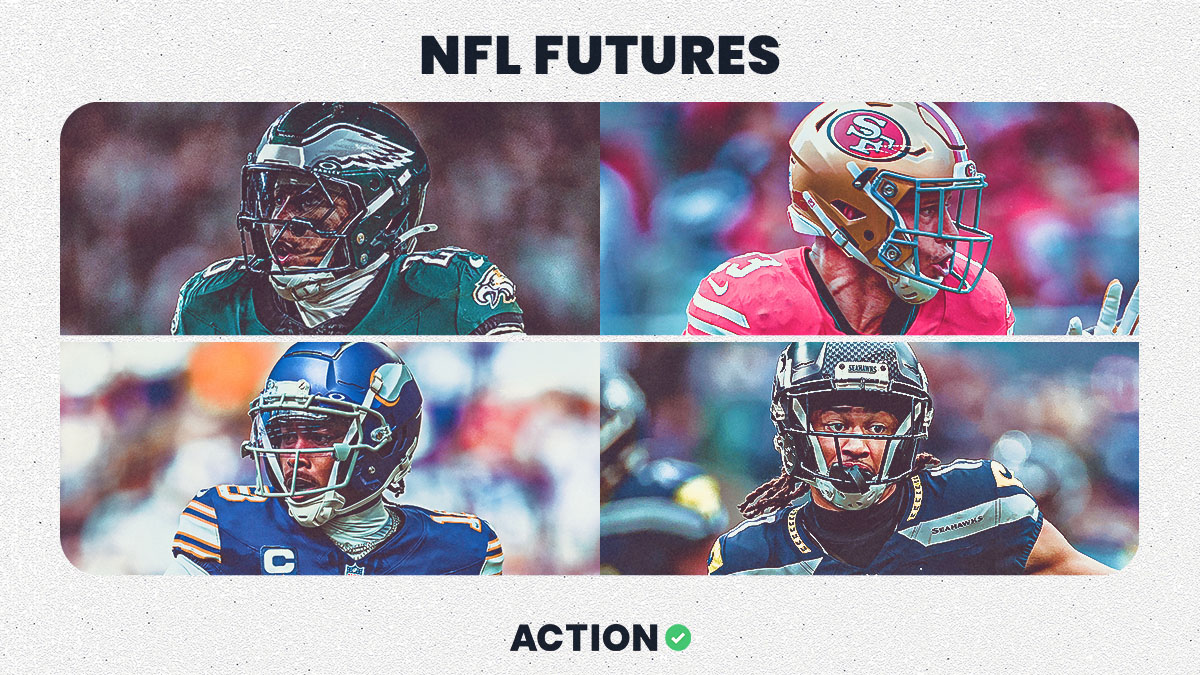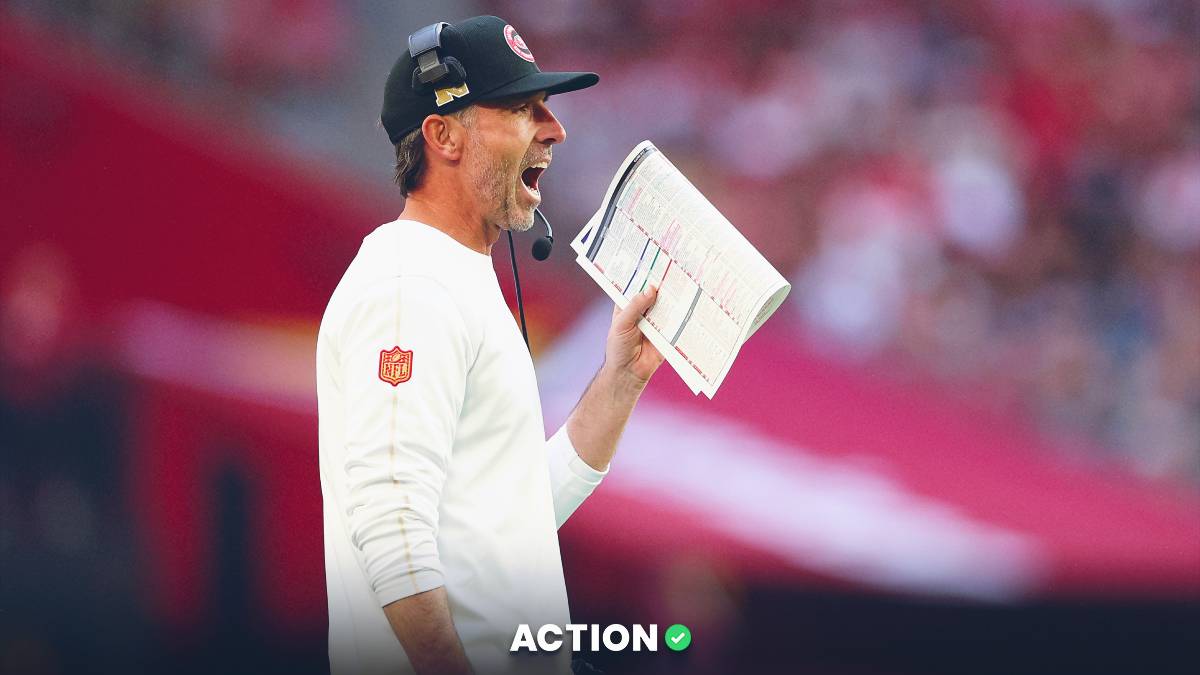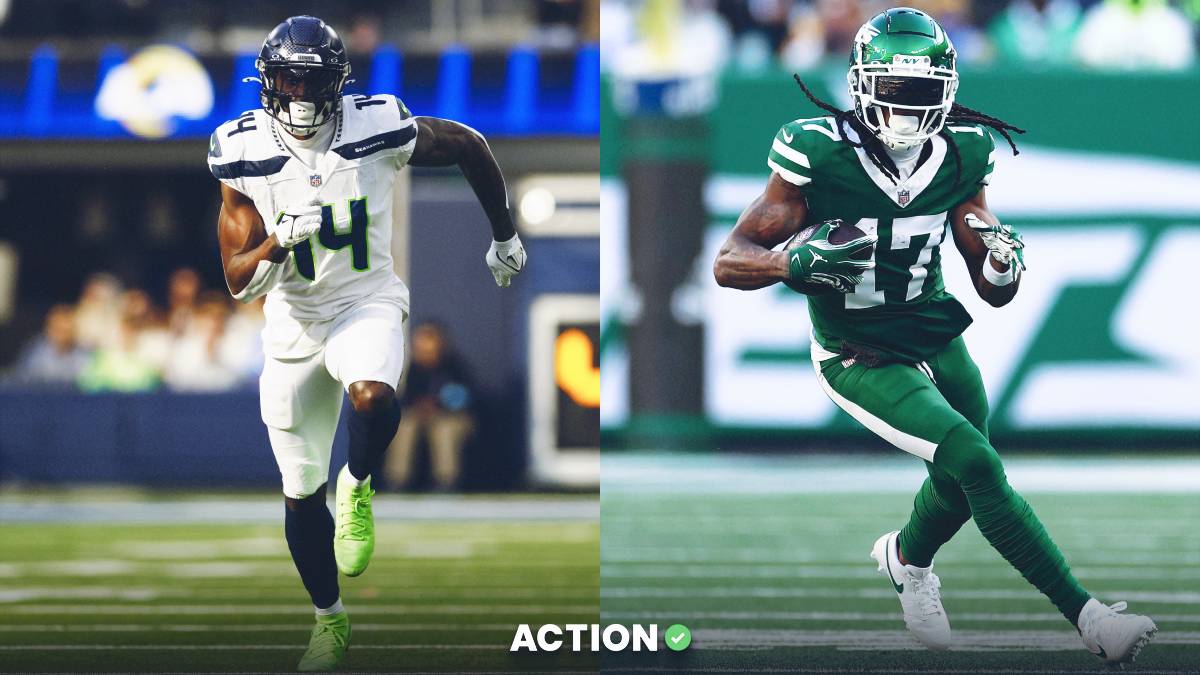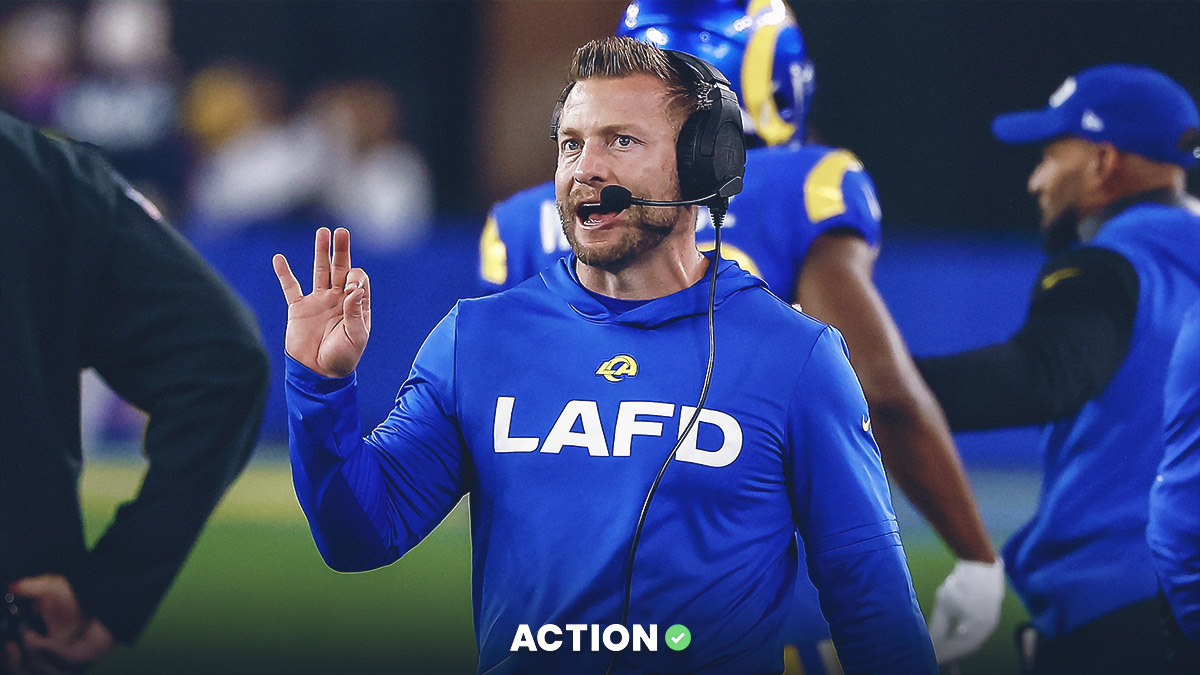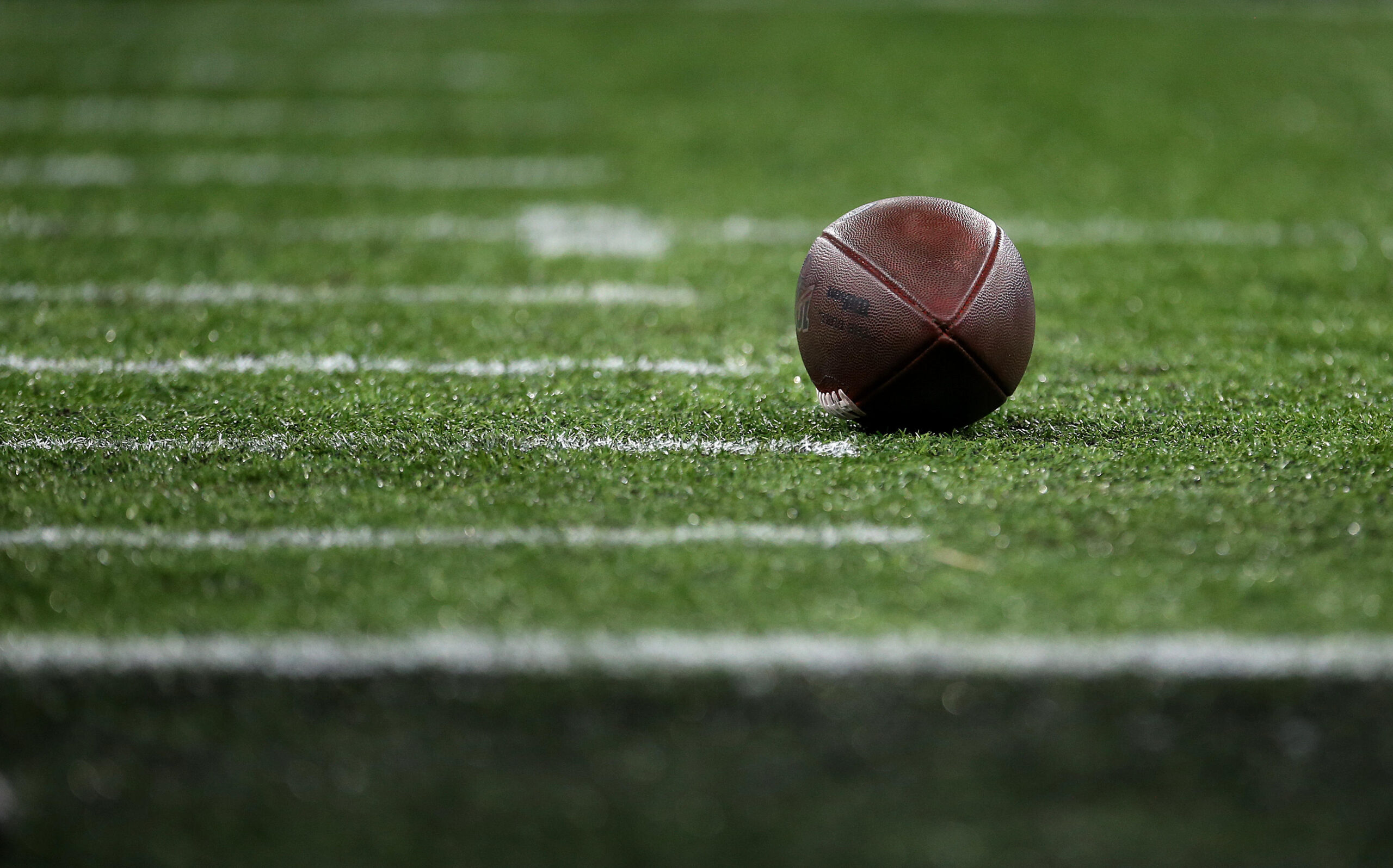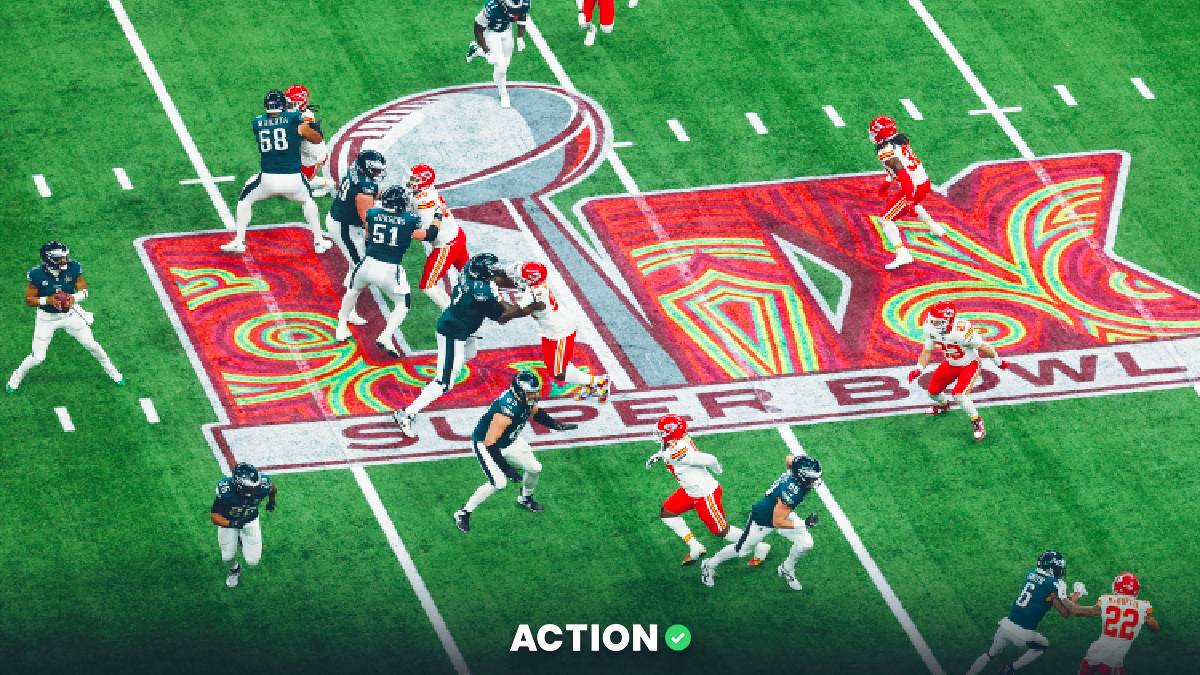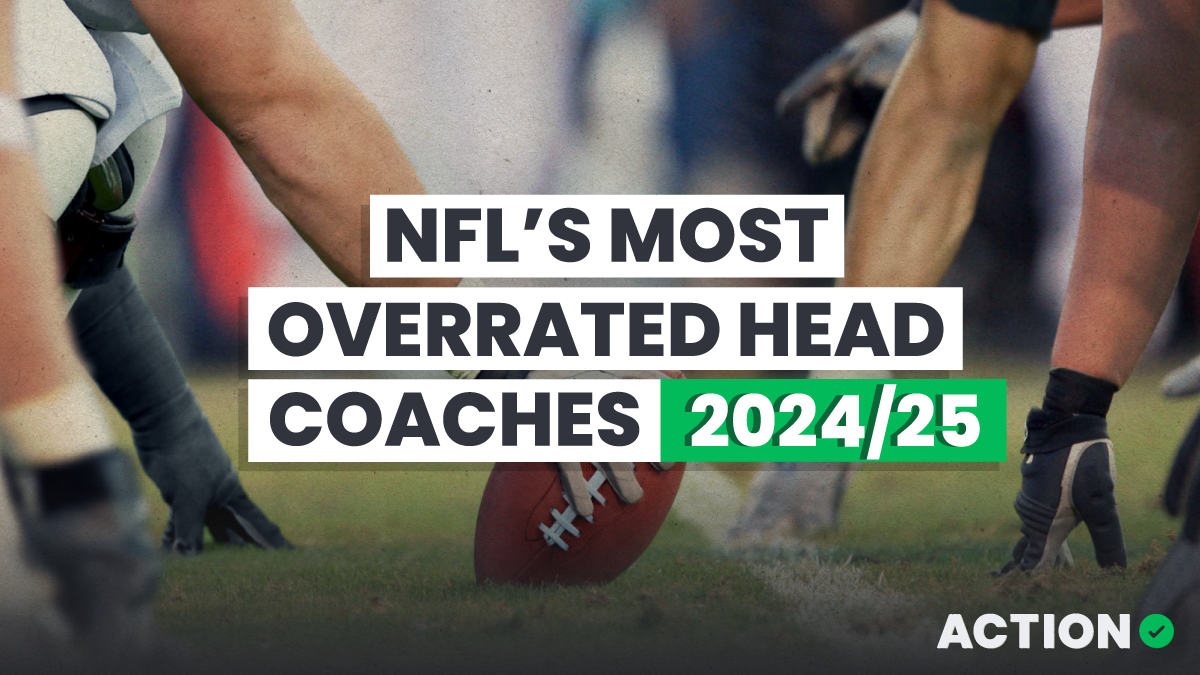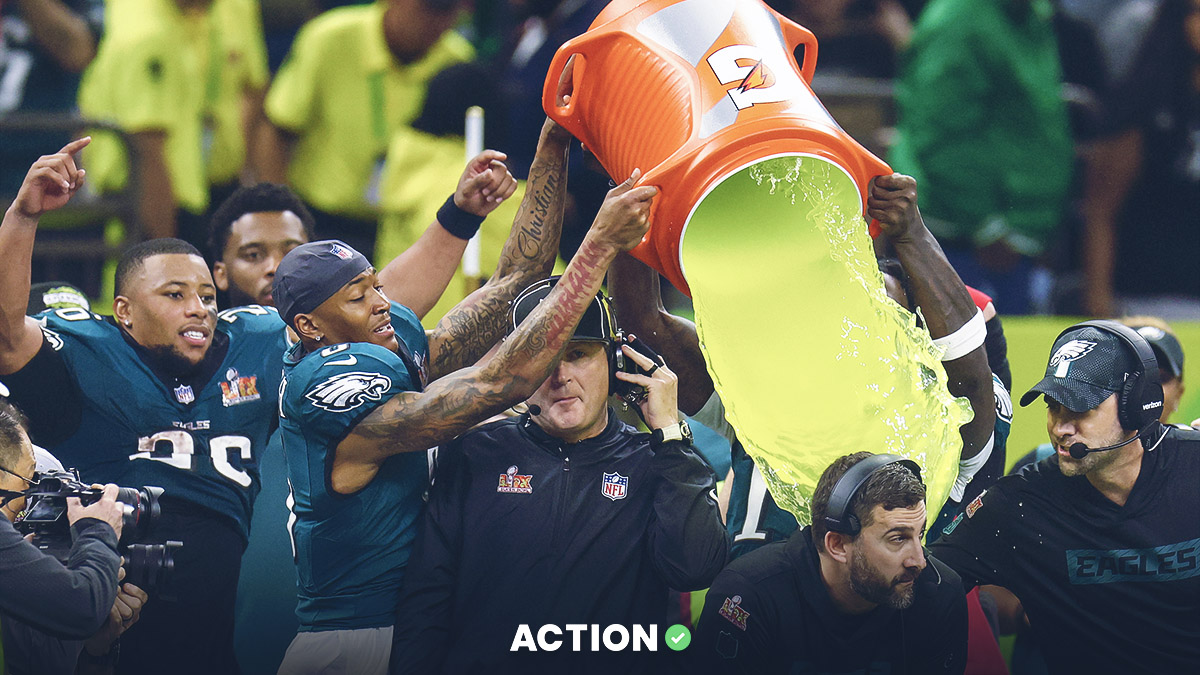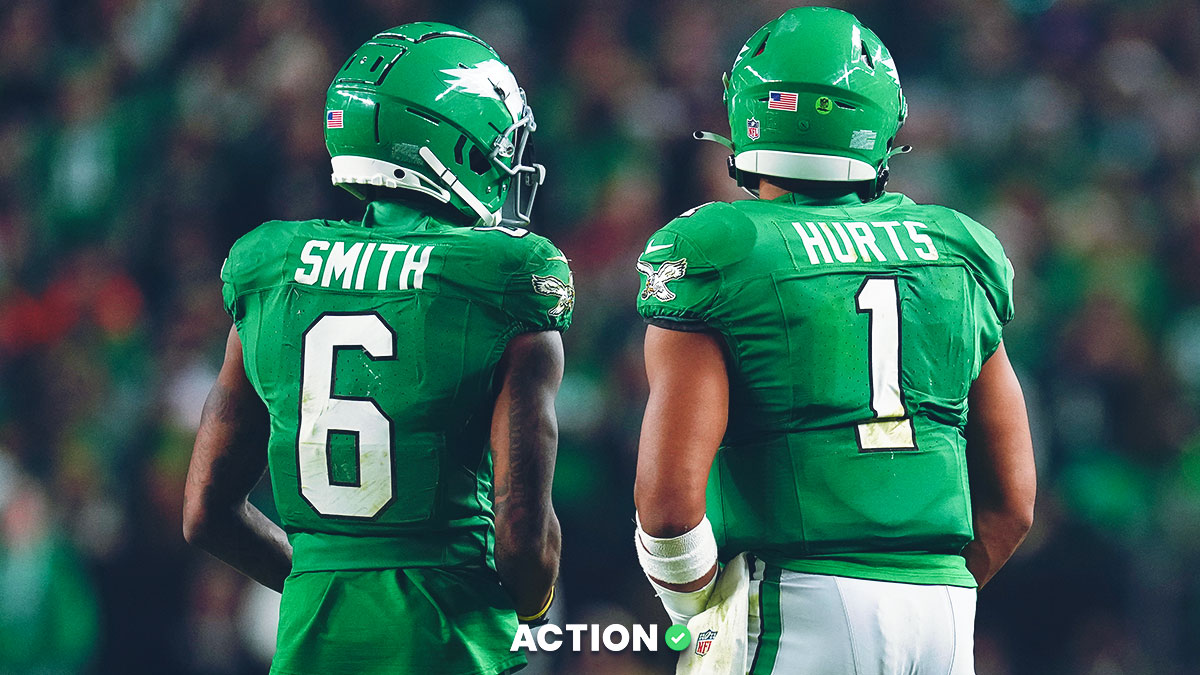So, you want to pick the NFL Offensive Rookie of the Year winner? Great.
Just make sure the player is a quarterback, running back or wide receiver, that they get significant playing time in 15-16 games, and put up a strong statistical season — one that doesn't look like a rookie.
The betting market for awards like this is quite subjective and narrative-driven, because the voting is done by humans with natural biases.
I'm going to dive into how voters have voted for Offensive Rookie of the Year in the past, the kinds of players who usually win this award, and a rubric for players in 2022 who check all the historical boxes.
The Definition
The definition: "The Associated Press NFL Rookie of the Year Award is an annual award given to the top offensive first-year player in the National Football League."
Our definition: "This award is given to the rookie quarterback, running back or wide receiver who puts up the best statistical season — a statistical season that looks like it wasn't from a rookie."
The Previous Winners
A mix of players have won. Since 2009, six winners have had odds of 12-1 or longer.
Timing is key here, though. Justin Herbert began the season at 30-1 because he wasn't the Week 1 starter. Then a team doctor punctured Tyrod Taylor's lung, Herbert took over, and posted a monster rookie season to win. Odell Beckham Jr. missed the first four games, and his price drifted.
So to get longshot prices, you may have to take a shot on a player stealing someone else's job before they actually steal it.
The Positions
Rookie of the Year is not a quarterback-only award, like the Heisman or NFL MVP. In fact, it was really a running back-only award until the early 2000s.
Then QBs started playing more as rookies and have won nine of the last 20. Running backs and wide receivers have won the other 11.
And more importantly…
Wide receivers have won just four times since 2000. And those four are spread out, not concentrated in the last few years when WRs started getting drafted higher than ever and teams began throwing more.
Wide receivers typically take a little longer to develop, but players like Ja'Marr Chase (winner) and Justin Jefferson (runner-up in 2020, and would've been a winner in many seasons) came in fully ready. Maybe it's an LSU thing.
But this year, wide receivers dominate the top of the odds board with so few rookie quarterbacks expected to start Week 1.
The Voting
How does the voting work?
Who votes: 50 Associated Press members who cover the NFL get votes. The NFL considers the AP Rookie of the Year award its official honor.
How many votes: Voters pick one player, so there are only 50 total ballots. It's not like the Heisman, where voters can rank multiple players.
When do they vote? End of the regular season.
Any regional voting biases? Not really, since the NFL is so national.
How many players get votes? Anywhere from 2-5. It's pretty concentrated around the top players, and the winner is pretty obvious most years. There's rarely a controversy about who should have won.
Since 2010, players to receive votes have been evenly split between QBs, RBs and WRs.
The Narrative
Does a player need some "positive narrative" in their favor to win?
Sort of. It doesn't hurt if a player has some feel-good story or the media pushes a narrative about that player early in the season, but this award is more about stats than narrative.
Quarterbacks probably need narrative more than any other position. Mac Jones didn't have a great statistical season in 2021 (67.6%, 3,801 yards, 22 TDs, 13 INTs).
But he was neck-and-neck with Ja'Marr Chase in the Rookie of the Year betting market all season because he:
- Started as a rookie for a historic franchise trying to replace an all-time QB.
- Was (by far) the best rookie QB in the class, when most expected him to be fourth or fifth-best.
- The Patriots were better than people expected.
It's tricky to adjust stats for position, but Najee Harris probably had a better year than Jones with over 1,600 total yards and 10 TDs and didn't get a single vote.
The narrative matters, but stats will usually win out.
The Stats
What kinds of stats do voters care about?
Raw stats matter. Actual passing or rushing yards are a much more valuable currency than air yards or yards per catch. Even if you're a hyper-efficient RB2, it'll be tough to win.
Running backs and wide receivers generally need 1,300+ total yards. Quarterbacks don't need to put up truly great seasons — just great for rookies.
Running backs and wide receivers need to put up really good statistical seasons — ones that make it seem like they're not rookies.
You also have to play. You can't come in halfway through the season or miss a ton of games to injury.
Since 2010:
- 9 winners played 15+ games.
- 28-of-39 vote-getters played every game.
Deshaun Watson is the only players to get votes while playing single-digit games. So, quarterbacks essentially need to be starting in September to have a shot.
You need volume. Because raw stats matter, you need volume and opportunity. Again, efficiency is not an accepted currency.
This leads into the next point.
The Team
Does the winner have to play for a good team?
ROY winners can play for bad teams — even quarterbacks. And that opens up pretty much the entire betting pool.
ROY winners since 2010 averaged about 7.9 wins per year. Some were on really bad teams (Saquon Barkley, 3-13) and some were on really good teams (Dak Prescott, 13-3). Four of the last six QBs to win have finished below .500.
Bad teams are usually drafting the best players and use them immediately because they don't have any better options.
The Draft Position
Twelve of the last 20 winners have been drafted in the top 10. I don't know what's correlation vs. causation — players drafted highly are better and get more opportunity, of course.
Running back is the only position to have multiple non-first-rounders win.
Other Notes
Offensive linemen have gotten votes: A few voters for this award love offensive line play. In 2021, three total votes out of 50 went to offensive linemen.
Six linemen have gotten votes since 2010.
Don't fall for it — even if an offensive lineman puts up a historic season, we can't measure it. Voters will opt for the stuff they can measure.
Quarterback wins matter if it's close: Dak Prescott beat out teammate Ezekiel Elliott in 2016 when Zeke put up a ridiculous season with 1,600+ yards and 15 TDs — arguably the second-best rookie RB season ever. But the Cowboys went 13-3 and Dak threw just four picks.
There are a few other instances when a running back beat out a QB with a far worse season than Zeke.
- Saquon Barkley over Baker Mayfield in 2018 (the Browns were bad)
- Todd Gurley over Jameis Winston in 2015 (the Bucs were bad)
The 2022 Candidates
OK, so who can win this award? Here are the boxes to check. Keep in mind these are subjective and I'm making my best guess at whether or not the player will play enough.
Position: Quarterback, running back, receiver.
Stats: Can the player put up enough raw stats? James Cook could thrive as a pass-catching running back with the Bills, but he may not get enough volume because Buffalo will spread the work out. Wide receiver John Metchie has a clear path to playing time for the Texans, but will the offense be good enough to get him the numbers he needs?
Playing time: Will the player see the field right away, or have a logical path to early playing time?
This year, the quarterbacks aren't in great spots. None of them even have a 50% chance to start Week 1, if you believe the betting markets.
Malik Willis, Desmond Ridder and Sam Howell need injuries to their starters to see any time. Kenny Pickett and Matt Corral are very much in QB battles and trail at the moment.
This list if a bit subjective — we can't fully predict stats or playing time, so I used my best judgment.
The Favorites
The wide receivers: Seven of the first 10 players on the odds board are receivers. Trouble is, they all fit a very similar profile:
- Top 35 picks
- Drafted by bad-to-average teams (mostly)
- Path to snaps and targets
- Tested well at combine
It's hard to separate them right now, and it just comes down to personal preference or if you can pick off a rogue price.
Breece Hall (RB, Jets) +900 at PointsBet is probably the most interesting favorite. He's the highest-ranked rookie RB in fantasy for 2022 at around RB24. The next closest rookie is Seahawks' Kenneth Walker at RB37. Hall is expected to see a lot of work for a Jets team that should improve on offense, and he's a legit three-down back.
If you do want to look at receiver, Cowboys WR Jalen Tolbert (+1600) and Commanders WR Jahan Dotson (+1800) check most of the same boxes as the favorites. They both have a chance to slot in as WR2s on teams with offenses that will be decent (Washington) or great (Dallas).
The Longshots
Tyler Allgeier, RB, Falcons (50-1 at BetMGM, 125-1 at FOX Bet): He's got a clear path to playing time with Cordarelle Patterson as the only player definitely ahead of him in the pecking order, and Patterson's not a traditional running back. Allgeier ran physical and caught passes at BYU, and the Falcons are hyping him up as a three-down back.
David Bell, WR, Browns (150-1 at FOX Bet, 100-1 at BetFred): Bell's price has gone from 100-1 pretty much across the board to 30-1 at most shops, but there's still a 100-1 at BetFred and a 150-1 at FoxBet if you have access in your state.
Bell posted elite numbers at Purdue but tested poorly at the NFL Combine, causing a steep drop to the third round. The Browns are hyping him up as a Day 1 contributor in the slot. Jarvis Landry is gone, so Amari Cooper and Donovan Peoples-Jones will be his competition for touches.


